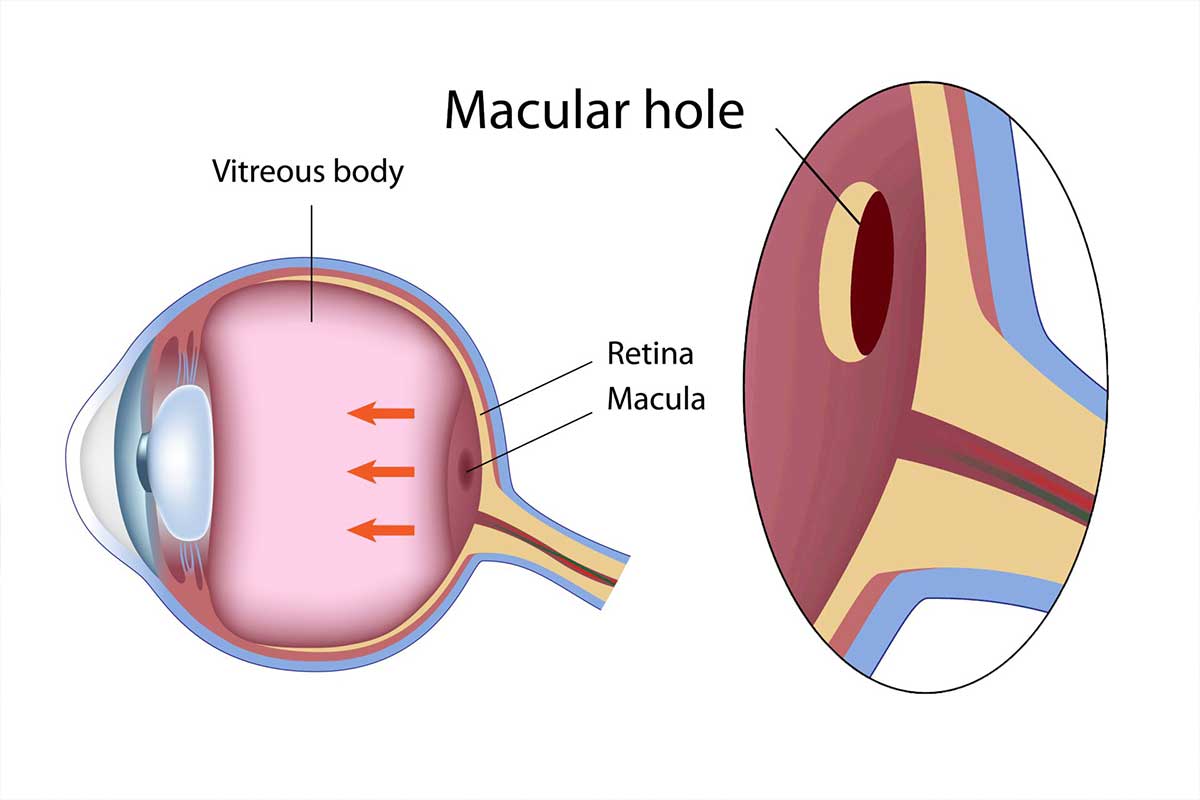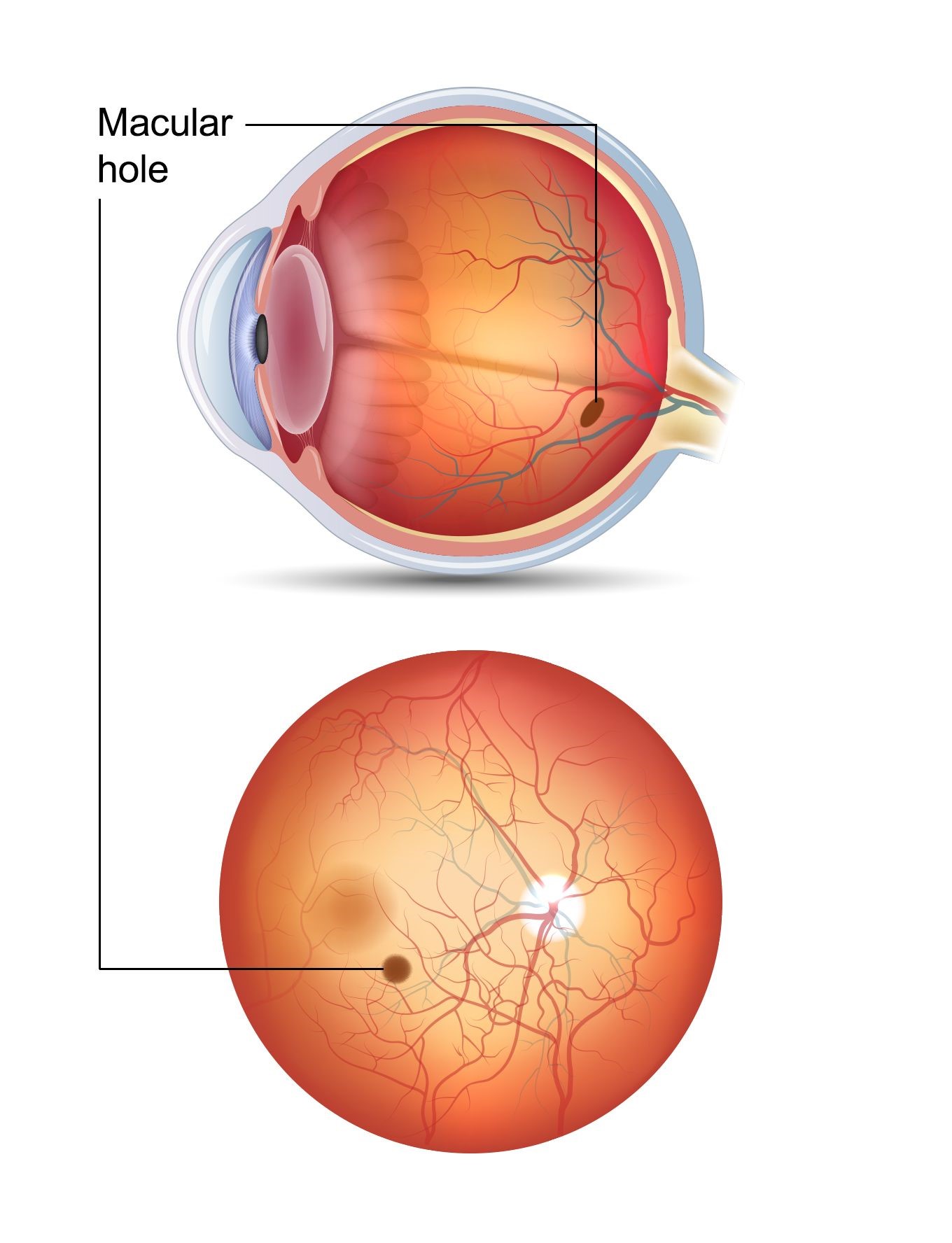Macular Hole

A macular hole is a hole in the macula which is present in retina. The macula is responsible for providing clear central vision which is needed for tasks such as need for reading, driving etc. Thus, a hole in the macular can cause blurred and distorted central vision.
How much vision is affected, depends upon the size of the hole and its location on the retina. If not treated on time, a macular hole can lead to a retinal detachment which is a serious condition that could cause sight loss and should receive immediate medical attention.
Stages of Macular Hole
Macular hole has three stages:
- Stage 1 – The Foveal detachments
- Stage 2 – The Partial-thickness holes and
- Stage 3 – The Full-thickness holes
With a stage 3 macular hole most of the central and detailed vision can be lost.
Symptoms of Macular Hole
The progression of Macular holes is slow. As it progresses, people may start to see the following symptoms in early stages:
- Slight distortion
- Blurriness in the straight vision
- Foggy Vision
- Bent or wavy central vision
- Difficulty reading
Apart from these a person with Macular holes may also face difficulty in doing daily tasks.
Causes of Macular Hole
The cause of a macular hole is typically associated with aging. The eye’s interior is mostly filled with a gel-like substance called vitreous. It contains millions of fine fibres that are attached to the surface of the retina and with aging the vitreous slowly shrinks and pulls away from the retinal surface. This can tear the retina and create a macular hole.
Also, the fibres that remain on the retinal surface can contract, increasing the tension on the retina and can lead to a macular hole.
Other conditions that can increase the risk of macular hole formation, include:
- Injury or trauma
- Retinal detachment
- Diabetic eye disease
- Severe myopia
- Macular pucker
Also, if macular hole exists in one eye, there are small chances that a macular hole will develop in the other eye over lifetime.

Treatment of Macular Hole
Some of the macular hole conditions can seal themselves and require no treatment. However, surgery is necessary in many cases to help improve vision.
Vitrectomy is the surgical procedure that is used as the treatment for macular hole. The procedure involves removing the vitreous gel to prevent it from pulling on the retina and it is replaced with a bubble containing a mixture of air and gas. It is essential that after the surgery, patients must remain in a face-down position to allow the bubble to press against the macula and be gradually reabsorbed by the eye, sealing the hole.
The success of surgery and vision improvement varies for individual patient. Patients with a macular hole for less than six months have a better chance of recovering vision than those who have had one for a longer period. Recovery can take up to three months after surgery.
Macular hole generally occurs in people over the age of 55 and develops naturally without any clear reason. It is thus crucial to consult an eye doctor after a certain age to get the eyes thoroughly tested specially if there has been indication of symptoms.
If you are looking for Macular Hole treatment in Thane , feel free to contact Dr. Ruchika , a eye specialist doctor in Thane
